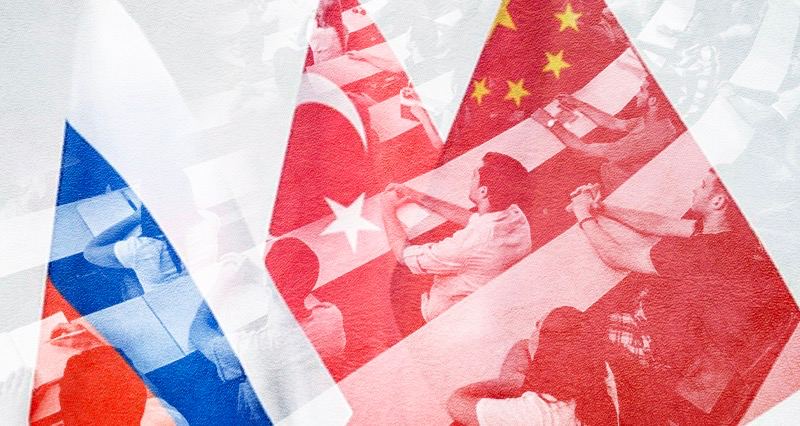Türkiye’s Ministry of National Education has decided to replace the term “Central Asia” with “Turkistan” in school textbooks. The ministry justified its decision by stating the goal of raising future generations with a sense of Turkish identity, national consciousness and patriotism.
So, what is the purpose? Why now? How will nations and states in Asia respond to this? What impact will it have on the Turkic states?
UWI author, historian and political scientist Assoc. Prof. Dr. Mehmet Perinçek provided an evaluation.
When making such terminological changes, it is important to think the issue through carefully. Because history does not just remain in the past, but has significant effects on the present as well.
During the course of BRICS membership application
There will be a BRICS summit on 22-24 October. President Erdoğan will be attending, and Türkiye has applied for membership in BRICS. The two countries that will approve the application are Russia and China. They are sensitive regarding Central Asia and have strong historical ties to the region. Türkiye’s activities in that region need to be coordinated with Russia and China so that Türkiye can achieve success and thwart US’s plans. Such changes could raise doubts in Russia and China and may lead to misunderstandings in diplomacy.
In the 1990s, Türkiye began to be more active in Central Asia, but within the boundaries of American plans, disrupting its relations with the Turkic world. There were coups and assassination attempts through FETÖ, which strained Türkiye’s relations with Central Asian countries, Russia and China.
Now, as Türkiye stands on the brink of BRICS membership, it needs a policy of integration and cooperation towards the region. Even the idea of “Turan” can be achieved in cooperation with Russia and China, rather than excluding or opposing them.
Organization of Turkic States and Eurasian integration
At the beginning of November, there will also be a meeting of the Organization of Turkic States. That meeting is very important for Türkiye and the region. There are concerns like, “Is NATO trying to enter the region through Türkiye?” These concerns need to be relieved.
Actually Binali Yıldırım, Chairman of Council of Elders, took such relieving steps stating, “Russia and China are natural members of the Organization of Turkic States”. By this, Yıldırım placed the Organization and Eurasian integration as complementary elements. But now the change in school textbooks will have an adverse effect. Rather than relieving the concerns, it will fuel them.
Also, there are some anti-Türkiye tendencies in Russia, China and Iran. This change will also give them more ground.
We should also take the broader context into account for Türkiye. The developments in Syria, the Eastern Mediterranean, the Black Sea and South Caucasus… To withstand the Western threat, Türkiye must cooperate with Russia, China, and Iran.
Anti-Russian and anti-Chinese history discourse
An anti-Russian and anti-Chinese discourse is prevailing in Türkiye as to historical justification for this change. Yes, Türkiye and Russia had conflicts in the past. The Ottoman Empire and Tsarist Russia competed over the Black Sea and the Caucasus in a large part of their history. They engaged in bloody wars. But to draw conclusions for the present based on that is misleading and risky. Azerbaijan’s territorial integrity has been ensured by Türkiye-Russia cooperation.
The term “Central Asia” has already been present in the school textbooks of the Kemalist revolution. When changing established concepts like “Central Asia”, you have to consider the possible effects and political consequences. This change is an anti-Russian and anti-Chinese change.
What is the aim of Turkish foreign policy? If it is to unite the Turkic world against Russia and China, then okay, this change is appropriate. But if it is to unite the Turkic world not against, but alongside and in harmony with Russia and China, then no, this change in no way serves that aim.

















Leave a Reply